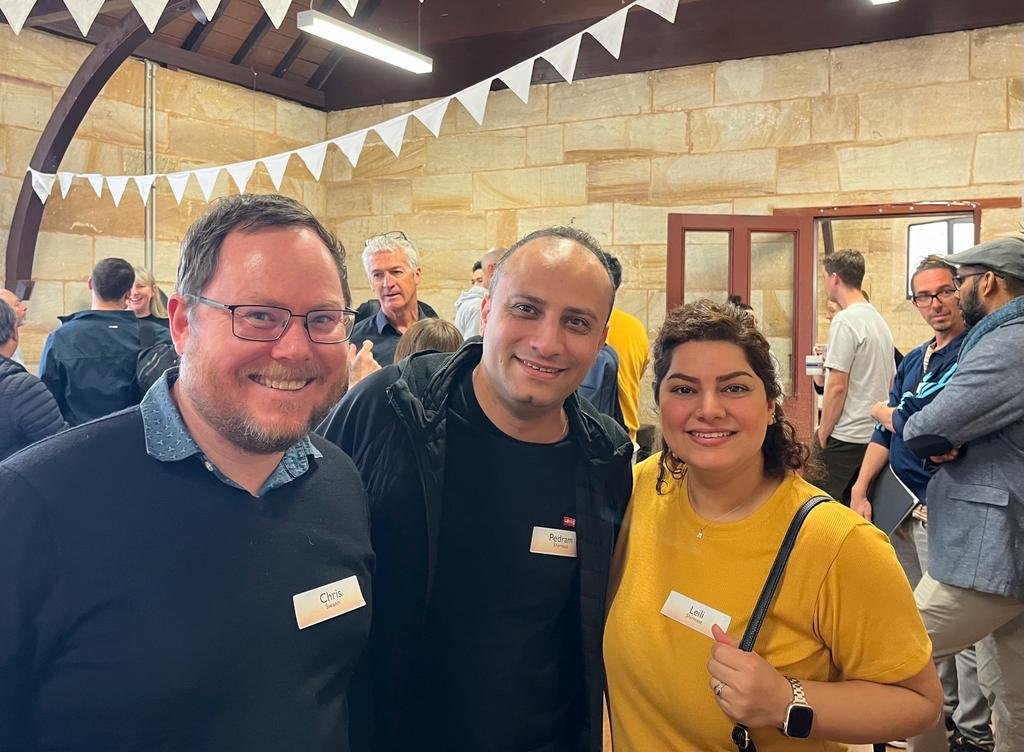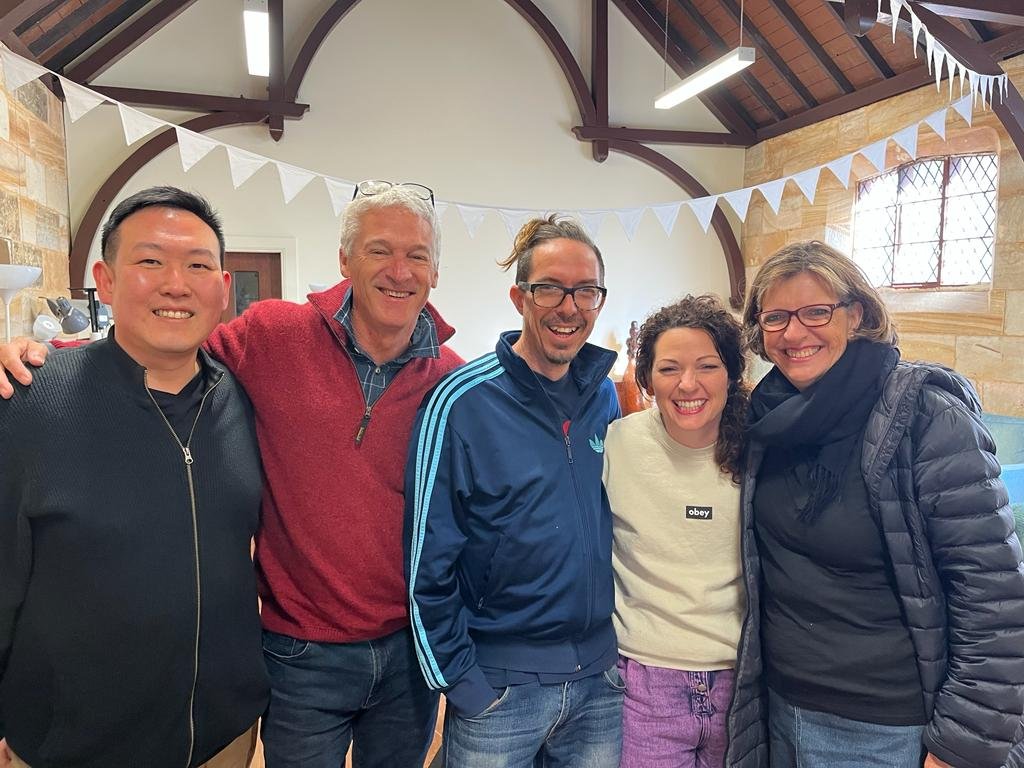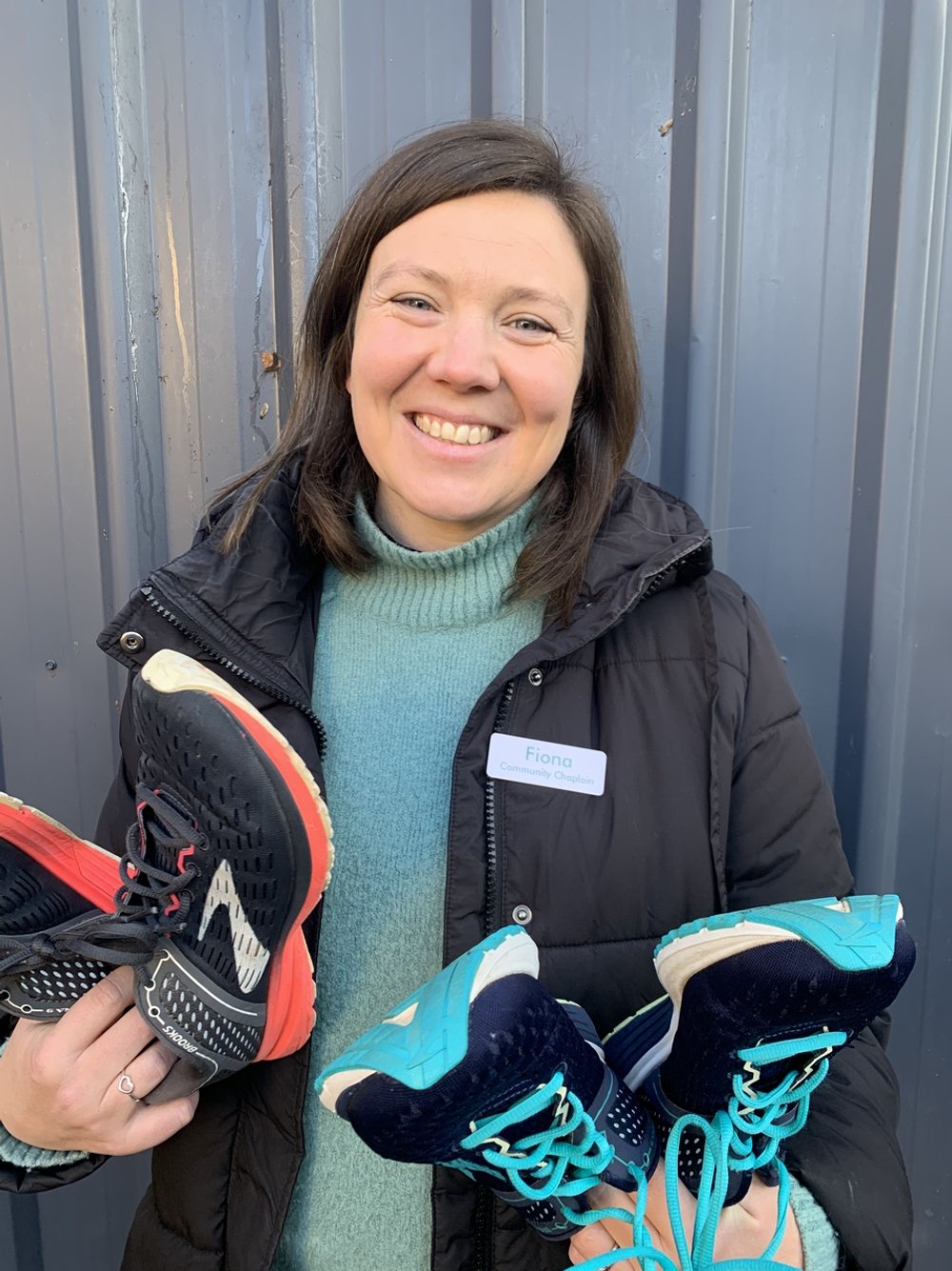City to City Australia hosted a three day Church Planting Intensive at The Garrison Church in Sydney at the end of August. At this Intensive, I witnessed first hand a superpower for church planters – the network of church planters itself.
Most of the planters who took part in the Intensive are involved in smaller cohorts of 5 or 6 planters who meet regularly online. But the Intensive brought several cohorts together in a larger group, along with other planters who are further along on the journey.
It was a joy to see relationships take root and begin to blossom among the 20 planters and planting couples from across Australia who gathered at The Garrison Church in the heart of Sydney for the Intensive. As they learned, laughed, cried, ate, planned and prayed together it became clear that this network is an incredibly powerful resource for them to draw on.
There were many special moments across the few days. Pedram Shirmast, who is pioneering a ministry reaching Farsi speakers in eastern Melbourne with his wife Leili, says this:
"The conference was not just an educational event but a transformative experience that empowered me to grow personally, spiritually, and professionally."
A key factor Pedram credits for this impact is the amount of time the planters spent in prayer over the few days. In the context of the relationships that were formed and strengthened, prayer was critical:
"Engaging with fellow attendees allowed me to establish meaningful connections. Sharing ideas and experiences with others enriched my perspective and helped me to have a better vision of the journey and the future. The prayers and support we offered one another in the small groups created a sense of unity and solidarity that was truly supportive and uplifting."
Emma Poulsen who with her husband Chris is planting Neighbourhood Church in the community of Walkervale in Bundaberg also reflected on the power of the network of planters as it took shape at the Intensive:
"I really appreciated the unity displayed across different denominations, approaches and contexts and I was really encouraged by the emphasis on praying with and for each other – and the value placed in this was a huge encouragement!"
Of course, there was plenty of learning to do and wise input to wrestle with at the Intensive. But Emma appreciated the time deliberately carved out for personal reflection: "I loved the opportunity to reflect on not only ministry design and what God is doing in our plant, but also what He is doing in our hearts."
What's significant about what these planters experienced at the Intensive is that the relationships in the network are rarely their primary affiliation.
Most belong to one denomination or another – or perhaps are planting in connection with a missionally healthy sending church. And there are plenty of differences between them. All are planting in contexts that are quite different from each other. And most have differing convictions about secondary matters such as baptism, spiritual gifts, and the roles of men and women in ministry.
Yet these church planters find in one another people who get them. In the network, planters find that they are seen and understood – and are able to give the gift of seeing and understanding others – in ways that are profoundly life-giving.
Click here to read more about our cohort program and express your interest in joining a cohort in 2024.
Written by Chris Swann
Director of Church Planting and Coaching










